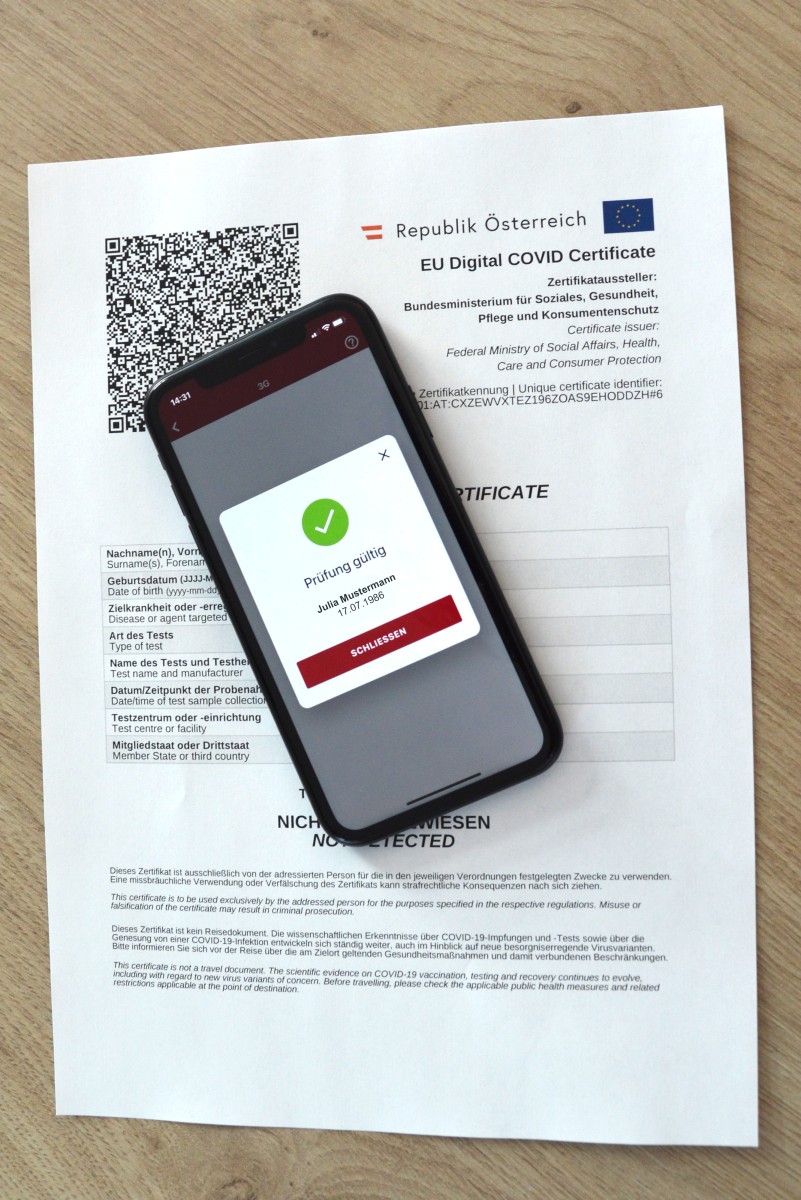Covid in Austria: Lockdown From Monday, Immediate Tightening of Measures in Vienna
Chancellor Schallenberg and Health Minister Mückstein have announced a nationwide lockdown for Austria beginning Monday. As of February 1, 2022, vaccination will be mandatory in Austria. Additionally, Vienna has announced a tightening of COVID-19 measures effective immediately. Read about the upcoming lockdown and the new measures in Vienna.
 Vienna Mayor Michael Ludwig: "We have to focus on the health of the population." / Picture: © WKW Wirtschaftskammer Wien - Vienna Chamber of Commerce / Anita Bock
Vienna Mayor Michael Ludwig: "We have to focus on the health of the population." / Picture: © WKW Wirtschaftskammer Wien - Vienna Chamber of Commerce / Anita Bock
Due to the surge in COVID-19 cases and hospitalizations, the Austrian government has announced that there will be a nationwide lockdown for ten days beginning on Monday 22 November.
Lockdown
The government announced that exit restrictions apply from midnight to midnight for everyone.
During the lockdown, the catering, cultural and event industries as well as retail shops will be closed, and only shops for “essential needs” will remain open.
According to the plan, the situation will be re-evaluated after the ten-day lockdown.
Following the general lockdown, restrictions on the unvaccinated will remain in place.
Although schools and kindergartens will remain open, Chancellor Alexander Schallenberg appealed to parents to keep their children at home if possible.
According to the ORF, Austrian Health Minister Wolfgang Mückstein said, “I would like to apologize for this. The lockdown is the very last resort–a lockdown is always an imposition. It was not a popular decision but a necessary one.”
Compulsory vaccination from 1 February
The government also announced that a national vaccination mandate is planned for 1 February 2022.
Those who do not have a legitimate excuse and refuse to get vaccinated after this date will face administrative penalties.
Immediate tightening of measures in Vienna
Prior to the nationwide lockdown announcement, the City of Vienna, led by Mayor Michael Ludwig, announced a tightening of measures to counter the increase in the spread of COVID-19 and resulting hospitalizations throughout Austria.
The Viennese government has implemented the following changes in COVID-19 measures:
Expansion of FFP2 mask requirement
- Gastronomy: Staff must wear FFP2 masks throughout. The guests must wear an FFP2 mask when entering the restaurant, on the way to the table, and when leaving the table.
- Retail: All staff and must wear FFP2 masks. The FFP2 mask requirement for customers remains unchanged (required in all retail stores)
- Body-related services (e.g. hairdressers): Both the service providers and customers must wear FFP2 masks.
- Indoor spaces: FFP2 masks are required in all indoor spaces that are not private areas. This means especially in the workplace, where there is close contact with other people (not only with customers but also between work colleagues). This applies in particular to those areas in which there are no structural protective measures.
2G + (Vaccinated or recovered and a valid PCR test)
For gatherings of more than 25 people–regardless of whether they take place indoors or outdoors–and in nighttime catering, 2G + applies to participants/customers.
This means that they have to show a valid recovery or vaccination certificate and a negative PCR test result that is not older than 48 hours.
Ninja pass and admission regulations for children and young people
- The test obligation from 6 years remains in place.
- For children ages 6 to 11, 3G applies with extended test validity: 48 hours for the rapid antigen test and 72 hours for the PCR test. In this age group, a fully completed ninja pass (proof of testing at school) is also valid as admission until the end of the week.
- The Ninja Pass is not an entry test for children and adolescents ages 12 to 15. In Vienna, 2.5G (vaccinated, tested, or PCR test) applies to them and each school test individually.
Christmas markets and fitness studios
Nothing changes at Christmas markets. 2G continues to apply.
In fitness studios, 2G is required for entry, and an FFP2 mask requirement also applies on the way to and away from the equipment and on the way to and from the shower.



